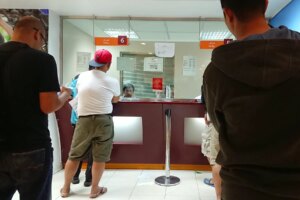Saudi Arabia is opening its doors to global investors like never before. Whether you’re interested in property, launching a business, or exploring Shariah-compliant funds, the Kingdom offers a range of investment opportunities tailored for expats.
With no personal income tax and a rapidly diversifying economy, now is a great time to explore how you can invest and thrive in Saudi Arabia.
Let’s dive in:
- Investment in Saudi Arabia
- Savings account investments in Saudi Arabia
- Pensions investments in Saudi Arabia
- Property investments in Saudi Arabia
- Business investments in Saudi Arabia
- Investment funds in Saudi Arabia
- Investing in stocks and shares in Saudi Arabia
- Offshore investments in Saudi Arabia
- Tax on investments in Saudi Arabia
- How to invest wisely in Saudi Arabia
- Investment advice in Saudi Arabia
- Useful resources
Investment in Saudi Arabia
Investment in Saudi Arabia is big business. In fact, the Kingdom received a whopping SR13 billion in foreign direct investment in 2018. It also ranks 44th on the 2020 edition of the Global Foreign Direct Investment Country Attractiveness Index. But that’s only part of the story.
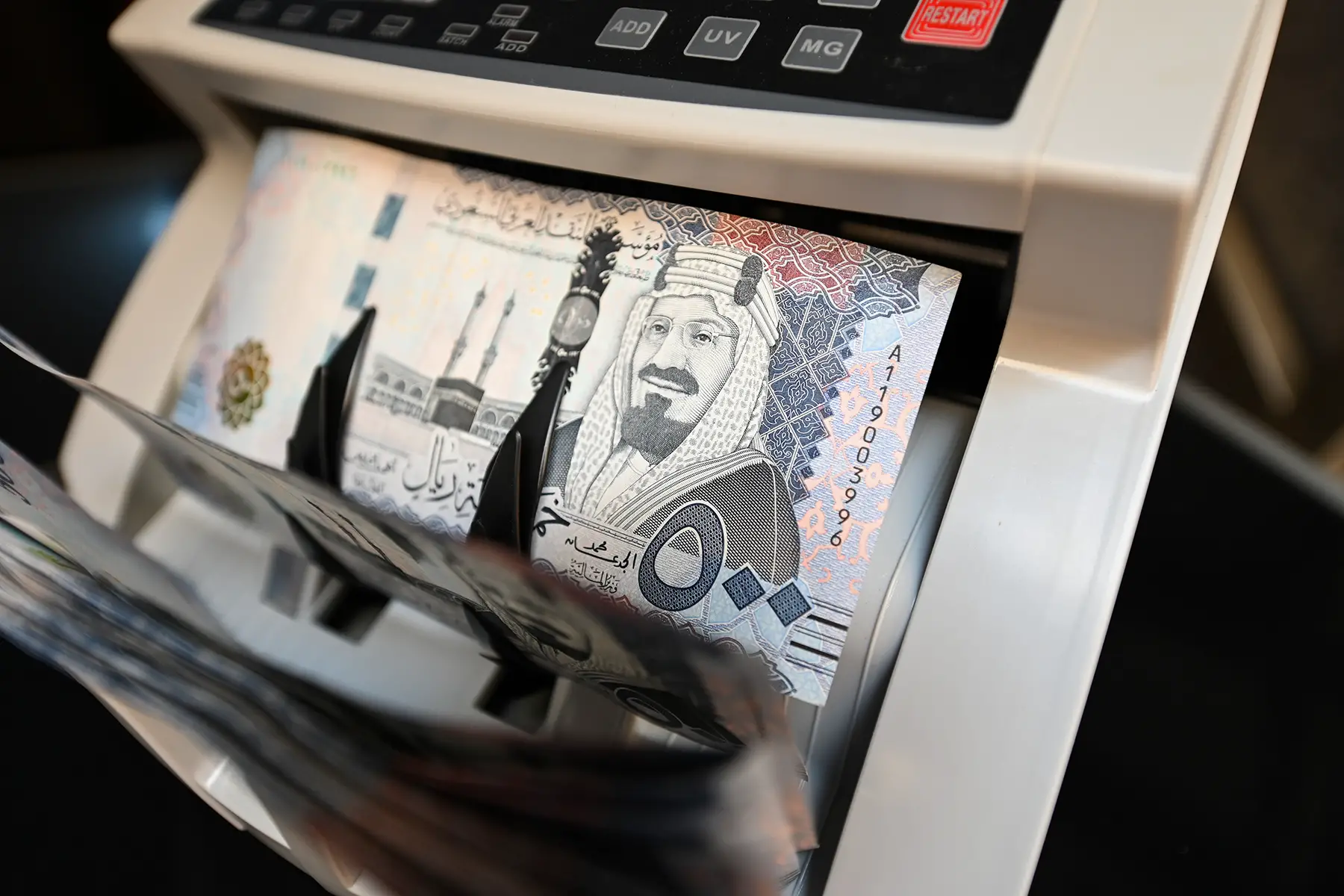
According to its long-term economic strategy, the Saudi government wants to attract greater levels of foreign investment in emerging sectors. This includes logistics, health, education, infrastructure, entertainment, clean energy, defense, tourism, and mining. The idea, essentially, is to diversify the economy away from oil.
The Saudi Stock Exchange opened its doors to foreign institutional investors in mid-2015. Furthermore, non-Saudis can (subject to Ministry of Housing approval) buy property. In addition, the entrepreneurial ecosystem is going from strength to strength. For example, the Kingdom welcomes 100% foreign-owned businesses.
All this is underpinned by a stable economy (albeit one exposed to regional geopolitical events), consolidated finances, and a well-regulated banking system. The fact that the Kingdom still has work to do; for example, in areas such as the legal framework around resolving commercial disputes and addressing transparency issues in areas such as intellectual property legislation. However, Saudi Arabia is a land of opportunity where the “he who dares wins” mantra very much applies.
Savings account investments in Saudi Arabia
Saudi banks offer a range of current, savings, and deposit accounts for expats. These include SAB, Bank Albilad, Alawwal Bank, Riyad Bank, Banque Saudi Fransi, Arab National Bank (ANB), Saudi Investment Bank, and MEEM. Check out souqalmal to compare the various accounts, find out about eligibility criteria, costs, and account opening procedures.
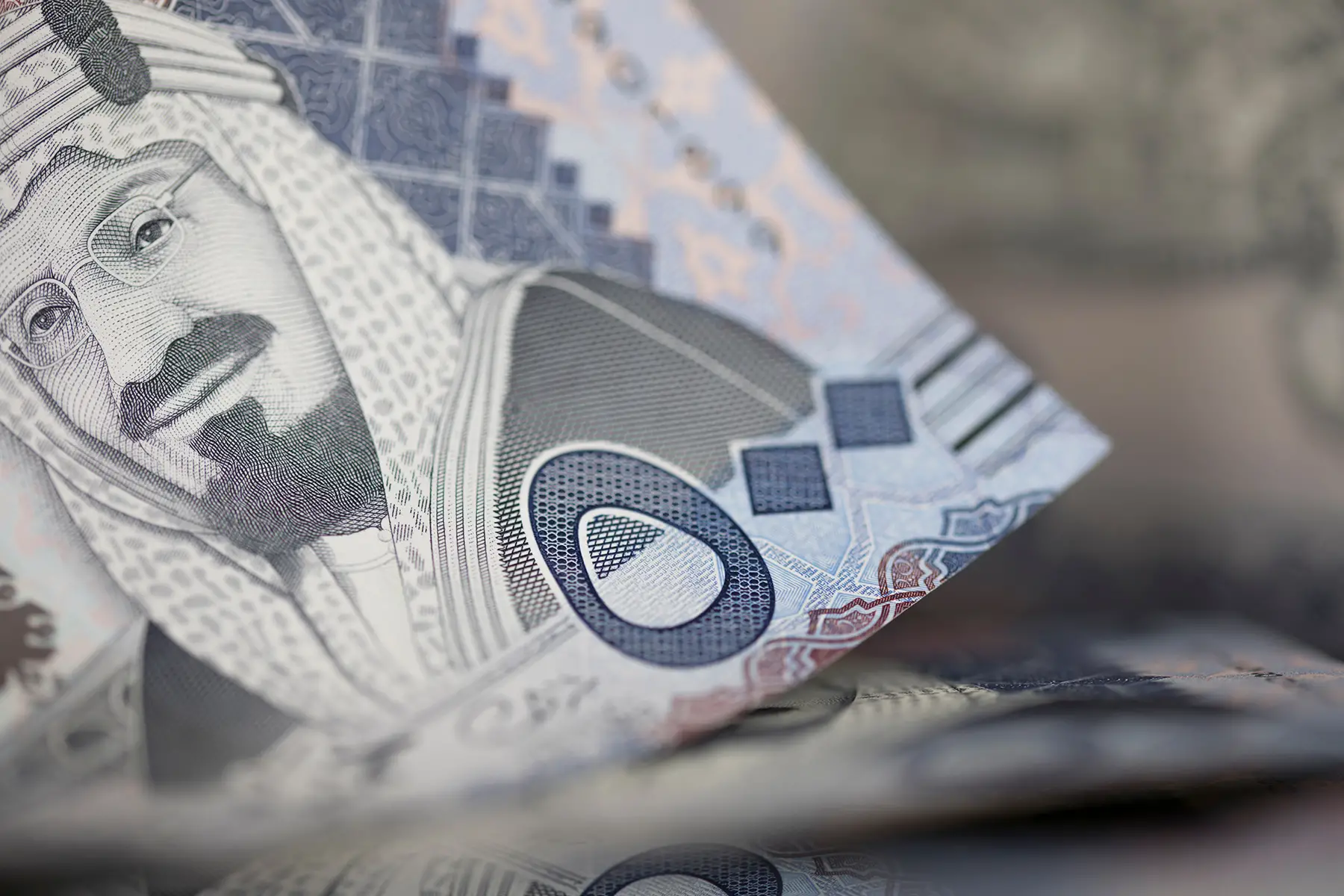
Pensions investments in Saudi Arabia
Expats in Saudi Arabia do not legally have to pay into the state social insurance scheme. In fact, it is common for expats to contribute to the pension scheme of their employer. Furthermore, some expats choose to continue contributing to social insurance schemes in their home country. Alternatively, they might opt for a private pension provider.
Property investments in Saudi Arabia
Saudi Arabia’s real estate market is expanding and evolving. It accounts for about 5% of state GDP at present; however, the government wants this figure to double in the next few years. Real estate prices have surged in the last decade as demand outstripped supply (mainly in the big cities); and as the economy grew steadily and strongly.
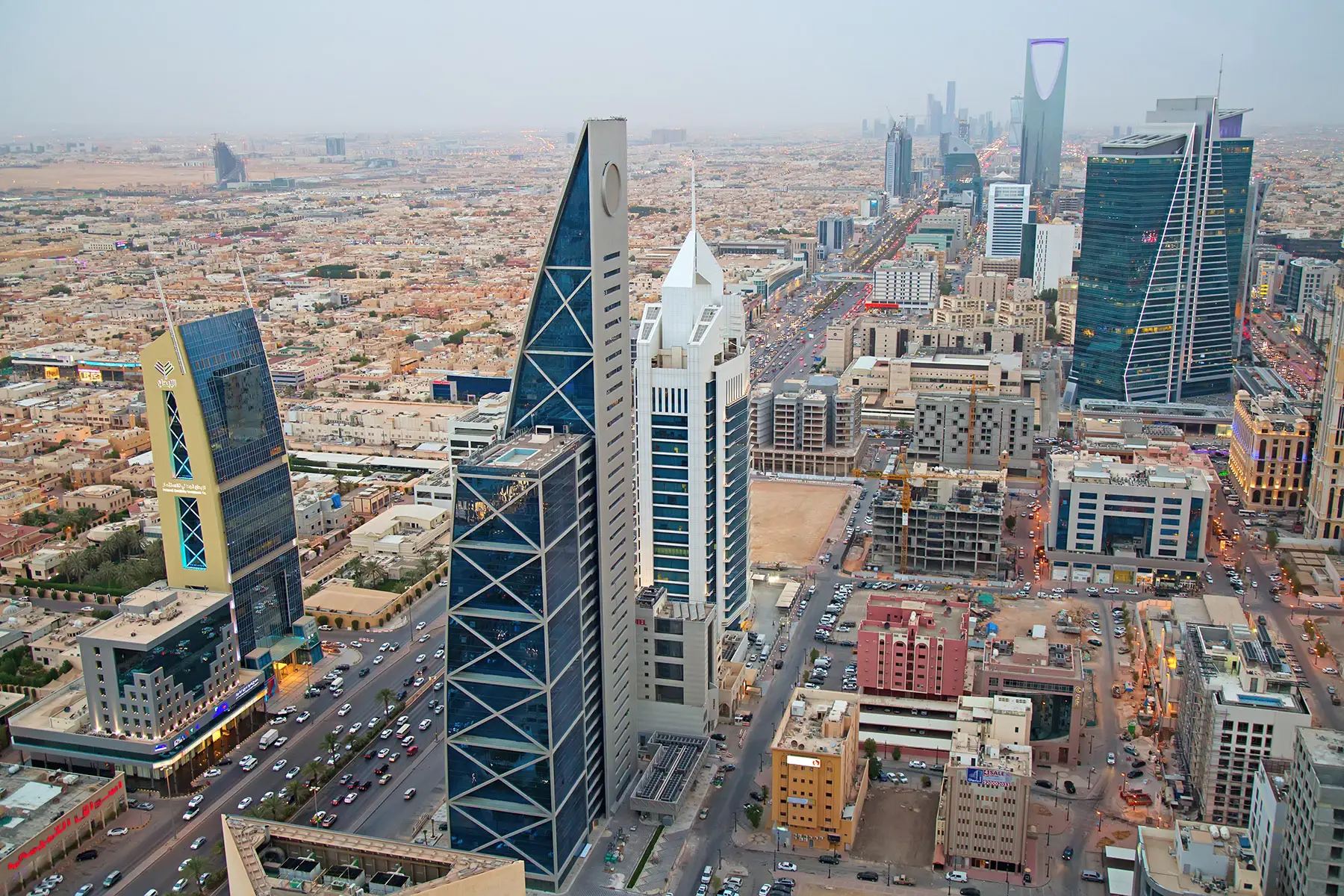
Prices are now cooling as new residential units come onto the market and broader economic growth slows. In fact, property consultancy Knight Frank’s Global House Price Index Q3 2018 reported prices in Saudi Arabia falling 3.7% from the same period of 2017; making it the worst-performing country on the index.
Riyadh, Jeddah, and Dammam are the country’s most developed property markets (and are where most expats live and work). New residential developments, from affordable homes to luxury condos, are springing up across the three cities. Meanwhile, massive new urban transport projects, such as the Riyadh Metro, should push property prices up; especially around stations.
Property laws in Saudi Arabia
Under Saudi law, expat residents can buy property; although not land. However, the property must be the primary residence, not purely for investment. The holy cities of Mecca and Medina are off-limits to all foreign investors and expat residents. Although no recent figures are available on expat home ownership in Saudi Arabia, anecdotally, most choose not to buy. That is because the vast majority of expats are provided with housing in their contracts.
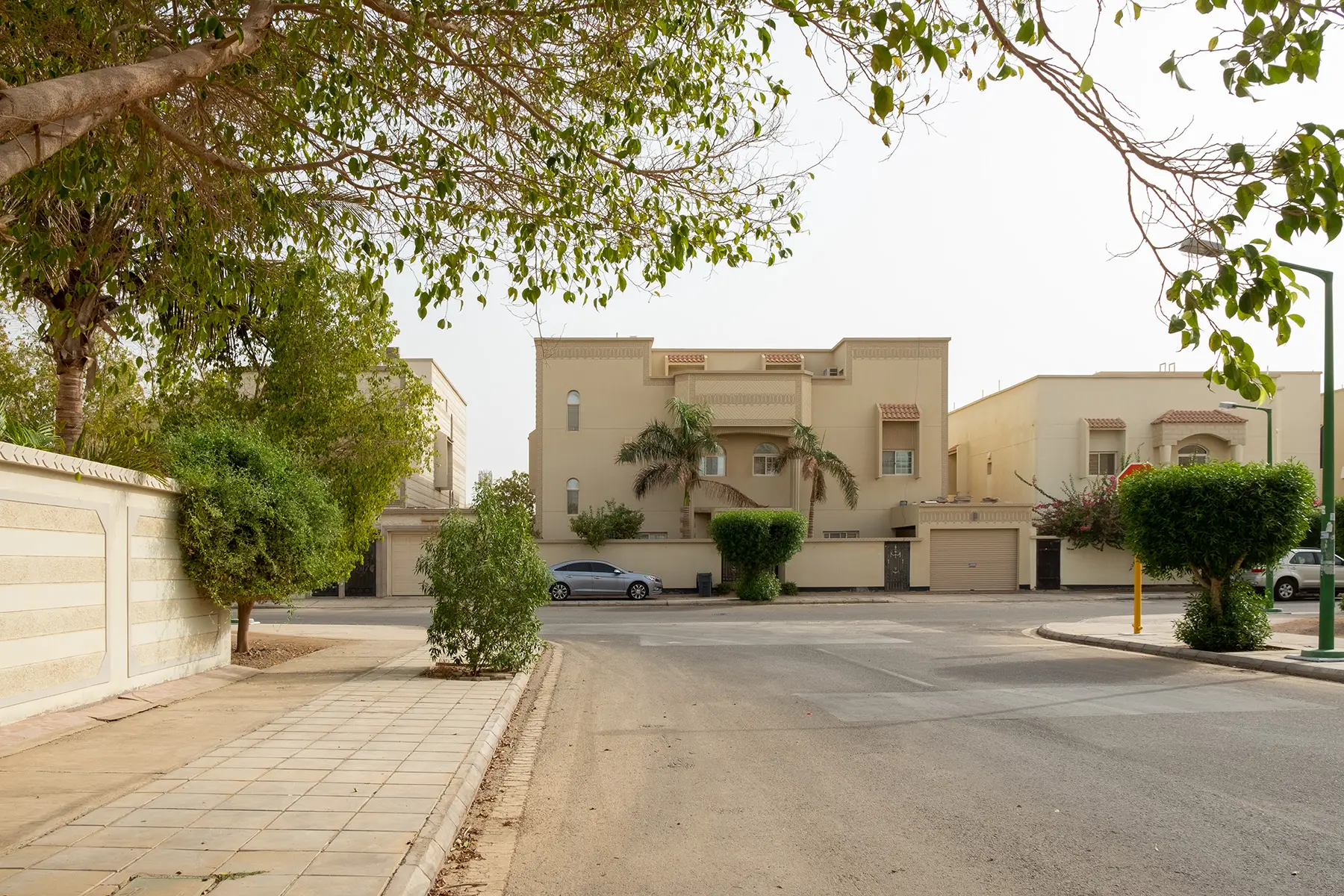
Investing in property in Saudi Arabia is an exercise in patience. The first step is to get a letter of permission from the housing ministry. This can take up to a year. The price is then negotiated between buyer, seller, and intermediary such as lawyer and/or broker. Once a private purchase agreement is negotiated, the investor will then obtain confirmation from the local Sharia Court that the seller owns the property. The transfer of title is then recorded, and the Court stamps the title document to indicate the legal transfer of ownership.
Getting a mortgage in Saudi Arabia
Twelve local banks currently offer mortgages to expats. They are Al Rajhi Bank, Alinma Bank, Arab National Bank, Bank Al Jazira, Bank Albilad, Banque Saudi Fransi, National Commercial Bank (NCB), Riyad Bank, SAB, Saudi Investment Bank, Samba, and Alawwal Bank. Check out Souqalmal for the best deals.

As well as your income, a Saudi bank will, when assessing your mortgage eligibility, probably take into account the status and reputation of your employer. The general rule of thumb is that the bigger and more stable the company, the better. Once the mortgage is approved, the bank typically deducts the monthly payments by direct debit from your salary account.
Unsurprisingly, house prices vary according to location. The bulk of the Kingdom’s population lives in Riyadh, Jeddah, or Dammam; therefore they generally have the highest prices. An upscale three-bedroom house in Riyadh might go for $800,000. Or you can snap up a fancy condo for around $300,000. As in any country, remember to apply common sense when buying a property in Saudi Arabia. For instance, hire a good lawyer and hire a good translator; as most documents will be in Arabic. Furthermore, do your own due diligence and market research. Note that some investors have lost money on stalled housing projects after the developer became insolvent.
Business investments in Saudi Arabia
“We’re open for business”. This is the message from the Saudi government to foreign investors. Like almost anywhere, though, the reality is slightly less simple. Yes, foreigners can (and do) generally invest in all areas of the Kingdom’s economy, except for oil and mining. But the country ranks 92nd out of 190 countries on the World Bank’s 2019 Doing Business Index. This suggests it isn’t all plain sailing for foreign investors.
If you are an entrepreneur, you won’t be short of advice and assistance. Small and medium-sized enterprises (SMEs) account for about a fifth of the national GDP. By 2030, the government wants this figure to be 35%. In the 2019 Global Entrepreneurship Monitor report, about three-quarters of those surveyed in Saudi Arabia saw good opportunities to start their own business; in fact, this was the second-highest figure of the 49 countries studied.
Business set-up procedures
Business set-up procedures are becoming more streamlined, and there’s all manner of assistance and advice for entrepreneurs. For funding advice and support for marketing and export, get in touch with the Small and Medium Enterprises Authority. Also check out Meras, a program that offers a website and nationwide network of one-stop shops for business start-ups.
The Saudi Arabian Ministry of Investment is also really helpful. It issues trade licenses and can advise on other formalities for foreign investors in the Kingdom, including visas. Foreign investors in Saudi Arabia choose from three corporate structures, as follows:
- Limited liability company (LLC): minimum start-up capital SR500,000. Must have a minimum of two shareholders (neither of whom need to be Saudi); the LLC is also subject to an annual audit;
- Branch office: open to foreign companies to carry out commercial activity. The parent company assumes full liability. Minimum start-up capital SR500,000. This structure is easier to set up than an LLC since there are no Articles of Association to approve;
- Representative office: can be a Technical and Scientific Office (TSO); through which a manufacturer can provide technical support to the local market via a distributor. It cannot engage in commercial activity or earn revenue. Or Temporary Company Registration (TC); a short-term business established for the purpose of a specific government contract.
Investment funds in Saudi Arabia
According to Investopedia, an investment fund is defined as ‘a supply of capital belonging to numerous investors used to collectively purchase securities while each investor retains ownership and control of his own shares.’ An investment fund provides a broader selection of investment opportunities, greater management expertise, and lower investment fees than investors might be able to obtain on their own, it adds.
Types of investment funds available to foreign investors and expats in Saudi Arabia include mutual funds, exchange-traded funds (ETFs), and bonds. Jadwa Investment manages a range of mutual funds according to an investor’s risk appetite and profile. Riyad Capital offers dealing services in sukuk (Islamic bonds), ETFs, and bond markets. Al Rajhi Capital, meanwhile, offers a comprehensive portfolio of managed mutual funds. And the HSBC Islamic Global Equity Index Fund invests in global sharia-compliant equities. Each will be able to offer advice on how to invest, how much to invest, and costs, risks, and likely returns; all based, of course, on your risk appetite.
In April 2019, Saudi Arabia announced that it would open up its government bond market to retail investors; with the aim of developing a savings culture. Government sukuk, or Islamic bonds, will be sold in SR1,000 portions, rather than the SR1 million previously offered. Additionally, the Kingdom has reduced fees and trading commissions for the local bond market to stimulate trading.
Investing in stocks and shares in Saudi Arabia
The Saudi Stock Exchange is the Middle East’s largest capital market. As of the end of 2018, its total capitalization was SR1.85 trillion; up 10% on the end-2017 figure. Additionally, foreign companies can trade on the stock exchange; they are eligible to acquire up to a 49% ownership of any listed company. However, foreign individuals cannot.
Most institutional investors engage the services of a broker or investment bank such as Morgan Stanley or Credit Suisse to invest in the Saudi Stock Exchange. In 2016, the Capital Market Authority launched the Real Estate Investment Traded Fund (REIT) on the Saudi Stock Exchange. Non-resident foreign investors can now trade in REITs on the exchange.
Offshore investments in Saudi Arabia
Unlike some other international jurisdictions, Saudi Arabia does not offer any kind of offshore investment vehicle to either Saudis or non-Saudis.
Tax on investments in Saudi Arabia
There is no personal income tax in Saudi Arabia. Examples of taxable income for expats are the income tax levied on a foreigner’s share in a Saudi resident corporation; unless the corporation is traded on the stock exchange, in which case zakat, a form of Islamic tax, is applied.
Disposal of shares in a resident corporation attracts a 20% capital gains tax. Capital gains on the disposal of shares of a company traded on the stock exchange are zero if the shares were acquired after 2004. Corporation tax is levied at 20% of income. Furthermore, there is no capital duty, stamp duty, real property tax, or inheritance tax in Saudi Arabia. Deloitte publishes a great overview of the Saudi tax system.
How to invest wisely in Saudi Arabia
Investing in Saudi Arabia may be very different from what you are used to; although the same basic principles apply. Factors to consider when investing in Saudi Arabia include:
- What investment opportunities are available as a foreigner or resident expat?
- Are the regulations around foreign investment set to change?
- Is foreign investment sufficiently protected by law?
- Are there any incentives to attract foreign investment (e.g., loans)?
- Can your capital be repatriated from the Kingdom?
- How does the geopolitical environment impact the market?
- Is the country politically stable?
- Is the currency stable?
- How developed is the banking and financial system?
- Do you understand the implications of the new bankruptcy law?
Bottom line: do your homework. Furthermore, engage with people on the ground who can give accurate, impartial advice.
Investment advice in Saudi Arabia
Most foreign investors approach government agencies such as the Ministry of Investment as the starting points for advice and assistance. On the other hand, you can engage the services of a lawyer who can guide you through the regulations.




